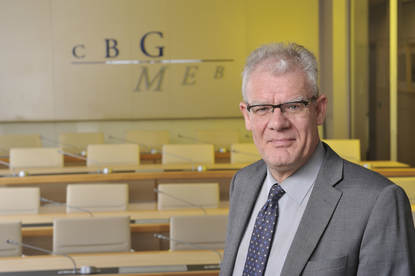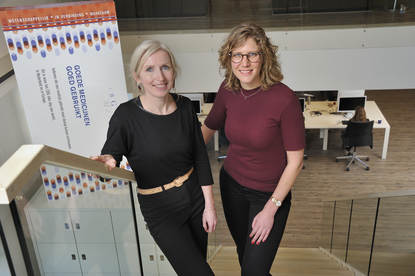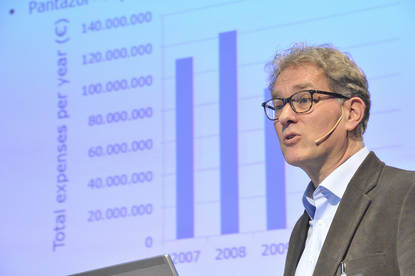Governance and Legal Affairs
The Policy, Regulatory and International Affairs (BRI) unit is charged with the administrative organisation, decision-making processes, strategic developments, legal procedures and representation of the MEB on the national and international level.
The competition between pharmaceutical companies was clearly visible in the legal proceedings in 2017. For instance, a pharmaceutical company attempted to obtain insight into the dossier of a competing company via the MEB while the competing company tried to prevent that. This led to various legal proceedings in a number of specific medicine dossiers.
Long-lasting proceedings regarding the medicine Cortiment came to an end in 2017. The MEB had refused to grant a marketing authorisation for this application in 2012. However, the marketing authority was ultimately granted to the company Cosmo in the appeal procedure. The company only provided the additional information that was relevant for an assessment of the effectiveness and risks of the medicine in the appeal procedure. The explanation that experts provided about the clinical practice during the hearing was decisive for the MEB in order for the consideration of the benefits and risks to come out in favour of Cortiment. The Council of State confirmed the MEB's decision.
The patented indication of generic pregabaline products is a procedure that already demanded a lot of MEB's attention in 2017. This case is now before the Court of Justice of the European Union. This court will now have to interpret articles 11 and 21 of the Directive 2001/83/EC.
In 2017, 12 hearings were organised in connection with application procedures (for example, for a proposed refusal of a marketing authorisation application) and appeal procedures.
Freedom of Information Act (Wob) requests
The MEB received 56 requests based on the Wob in 2017. Most of the requests concerned information about current marketing authorisation applications at the MEB. The MEB also received more extensive requests. In about ten requests, information was requested from the registration file of a medicine, such as clinical and non-clinical studies, assessment reports or authorisation decisions of changes in the SmPC. In most cases, Wob requests are made by a competing pharmaceutical company.
The court issued a final judgement in the beginning of 2017 in the case of the disclosure of information by the MEB about the medicine articaine, following a Wob request. This case has led to more transparency at the MEB. From now on, the registration dossier is also considered public information. It is assessed per document category and per document whether there are grounds for exceptions preventing disclosure.
Integrity
Independence demands integrity. To ensure this, the MEB has a Code of Conduct and an integrity policy. Employees, external experts and MEB members fill in a ‘Conflict of Interest Declaration’. This takes place when entering into the company's employment or when entering into a contract, and then annually. In the meantime, new interests must be reported. On the basis of the Code of Conduct and the integrity policy, a total of 116 fundamental assessments were conducted in 2017. The result of an assessment can be that limitations are laid down for an employee or MEB member which mean that he or she cannot be involved in certain activities. Limitations applied for 39 employees and 9 MEB members in 2017.
Appeal procedures and hearings
| Appeal procedures | Hearings | |
|---|---|---|
| 2017 | 43 | 12 |
| 2016 | 25 | 17 |
| 2015 | 21 | 14 |
| 2014 | 26 | 12 |
| 2013 | 22 | 13 |
Requests on the basis of the Freedom of Information Act
| Freedom of Information requests | |
|---|---|
| 2016 | 56 |
| 2016 | 70 |
| 2015 | 57 |
| 2014 | 52 |
| 2013 | 42 |









